Idea by
Jonas Huhn, Stephan Junglas, Benjamin Weingarten, Tobias Schafroth, Arne Schneider, Dennis Wollny, Jurek Werth
DIESE Studio
Call for ideas 2020
Kranichstein Represent
Kranichstein Represent
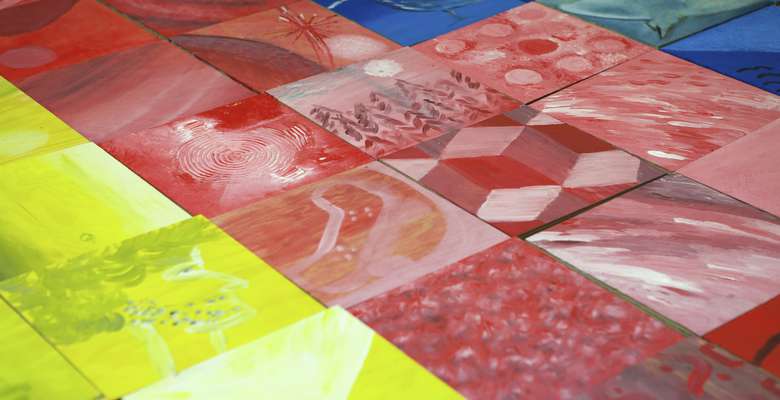
- Site-specific cases
Started in 1968 Kranichstein became a large-scale construction of modernist housing developments outside of the city Darmstadt in Germany designed by the architect Ernst May. Today Kranichstein is a multicultural district with a diversified social structure and is one of few still successfull modernist housing projects of the 60s.
The carpet acts as the stage and last stop of the performative tour called Kranichstein Reprents created by author and theatre director Volker Schmidt. A group of actors, young and old, locals and professionals take the visitors on a tour whereby fiction and real stories are blending the past with the present.
DIESE Studio was commissioned to build a stage for the play and created a community based design project by using 2000 tiles hand-painted by locals and putting them toghether to create a huge beautiful mosaic pattern. The carpet symbolises the act of coming together, the feeling coziness and is a tool to overcome social boundaries.
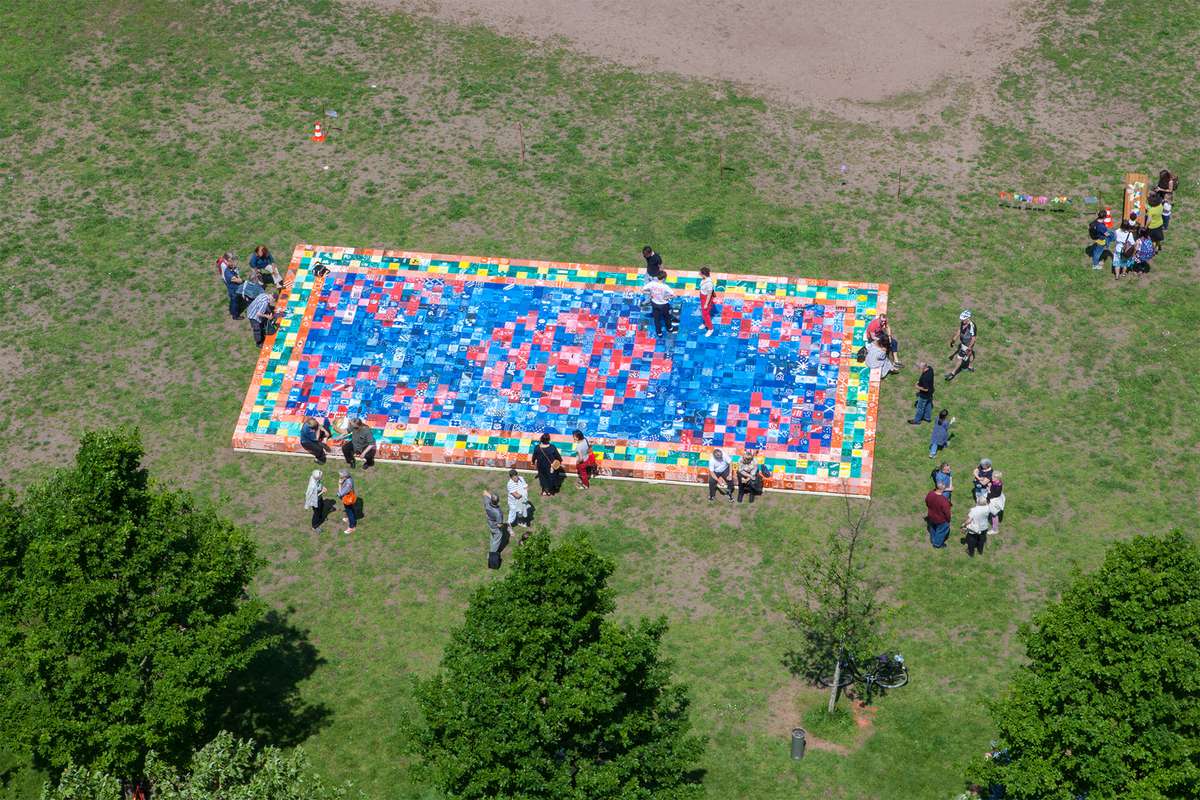
Carpet pattern viewed from the top of the highrises.
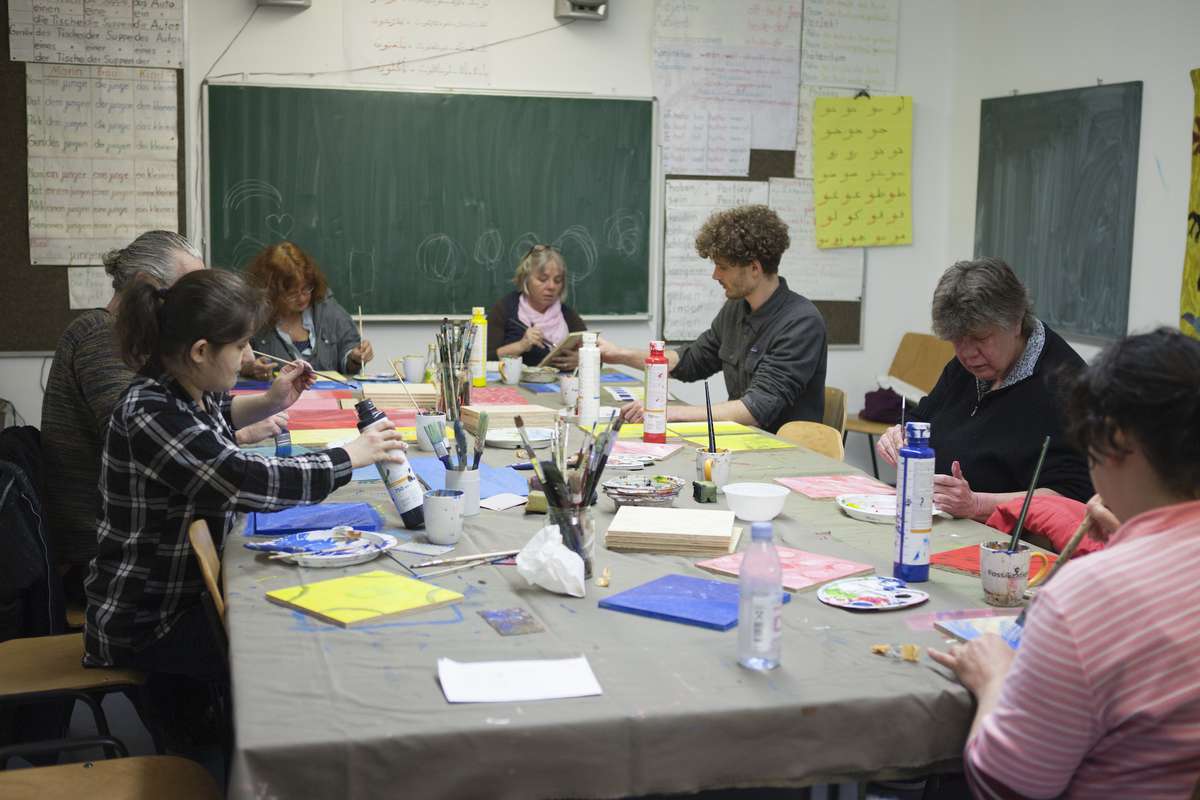
Painting the wooden tiles at a local community centre.
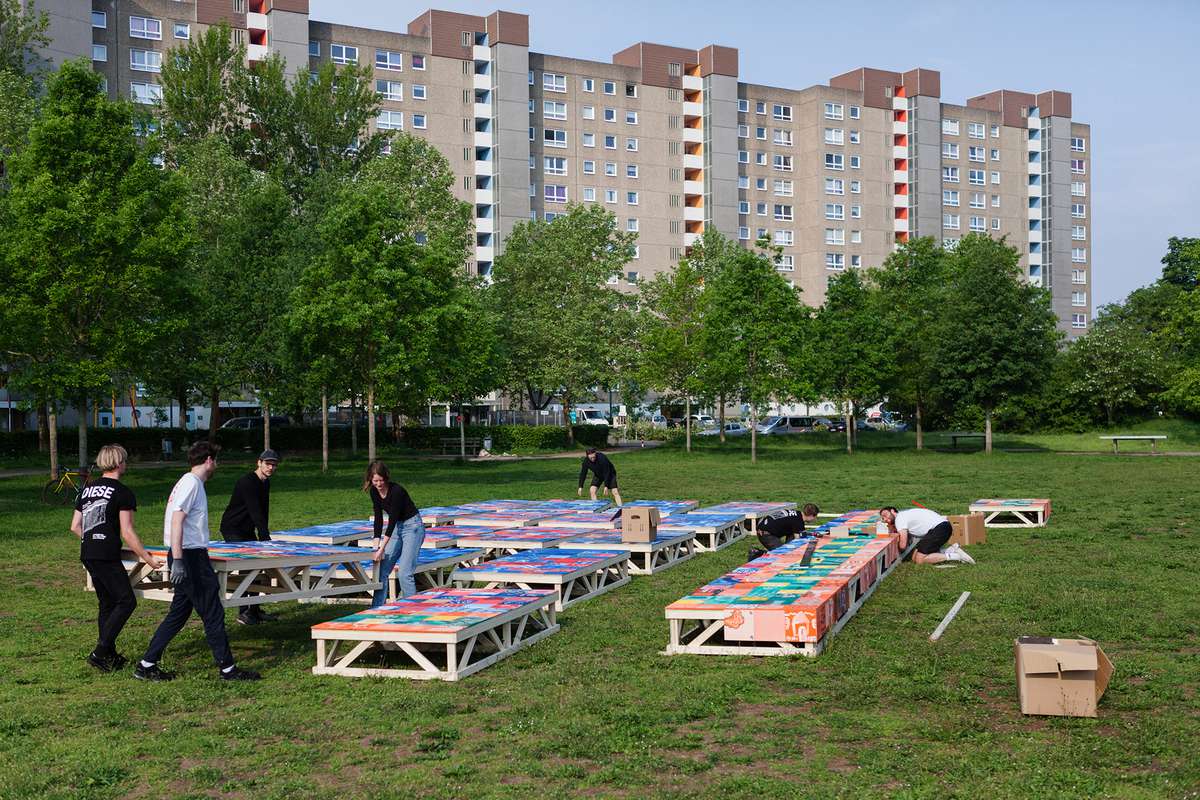
Setting up the stage.
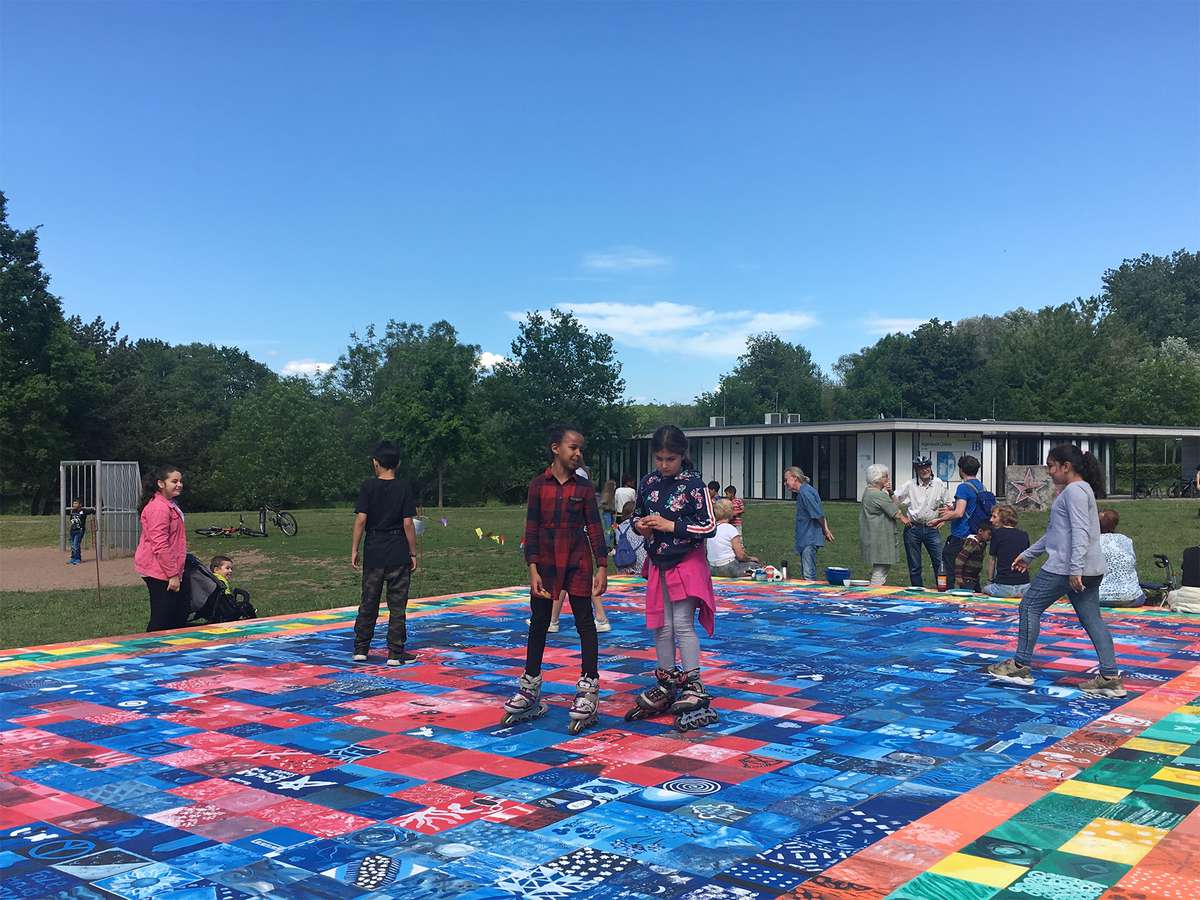
Kids and locals using the carpet for the first time.
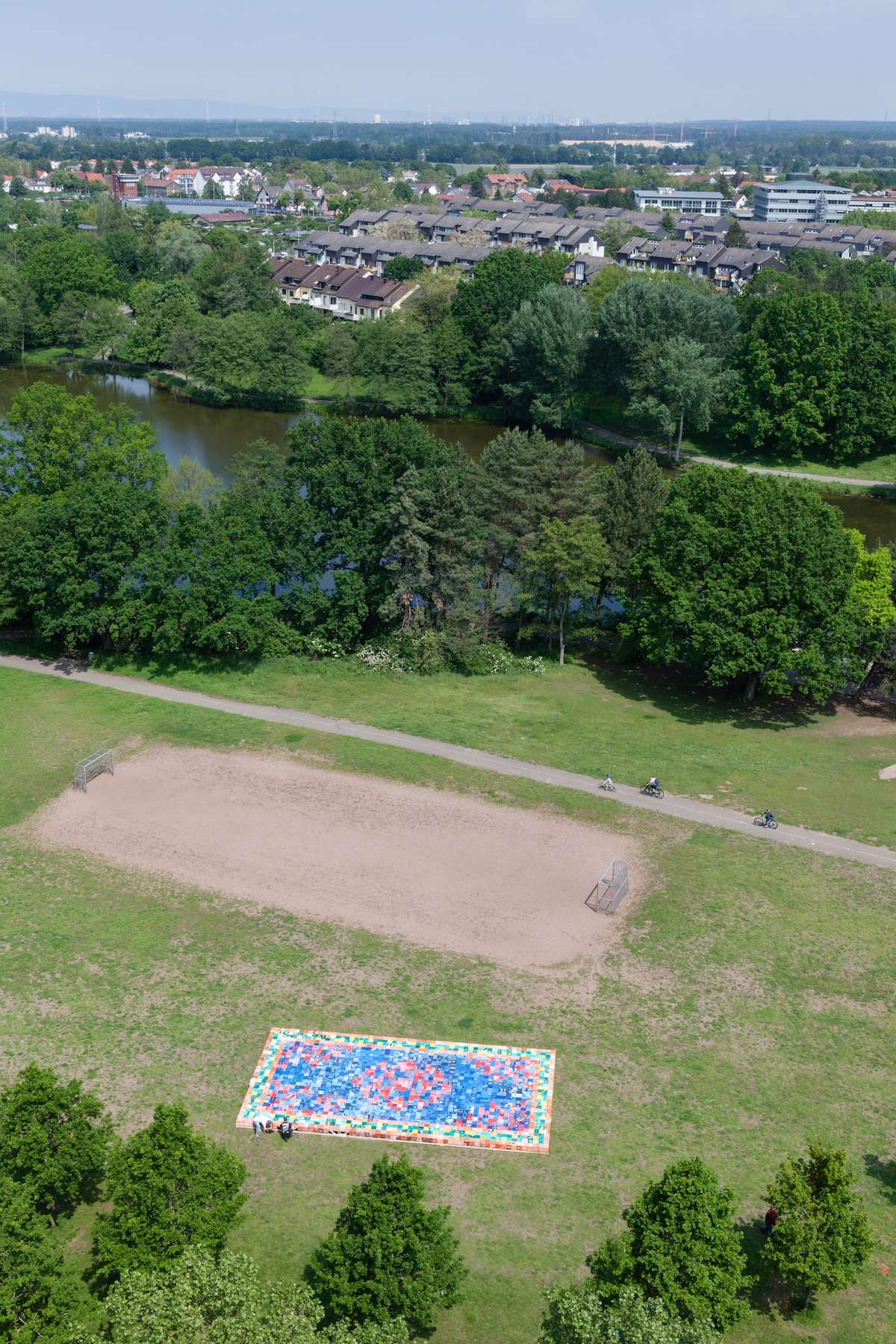
Top view of the carpet in the park near the local pond.
Kranichstein Represent
Kranichstein Represent

- Site-specific cases
Started in 1968 Kranichstein became a large-scale construction of modernist housing developments outside of the city Darmstadt in Germany designed by the architect Ernst May. Today Kranichstein is a multicultural district with a diversified social structure and is one of few still successfull modernist housing projects of the 60s.
The carpet acts as the stage and last stop of the performative tour called Kranichstein Reprents created by author and theatre director Volker Schmidt. A group of actors, young and old, locals and professionals take the visitors on a tour whereby fiction and real stories are blending the past with the present.
DIESE Studio was commissioned to build a stage for the play and created a community based design project by using 2000 tiles hand-painted by locals and putting them toghether to create a huge beautiful mosaic pattern. The carpet symbolises the act of coming together, the feeling coziness and is a tool to overcome social boundaries.
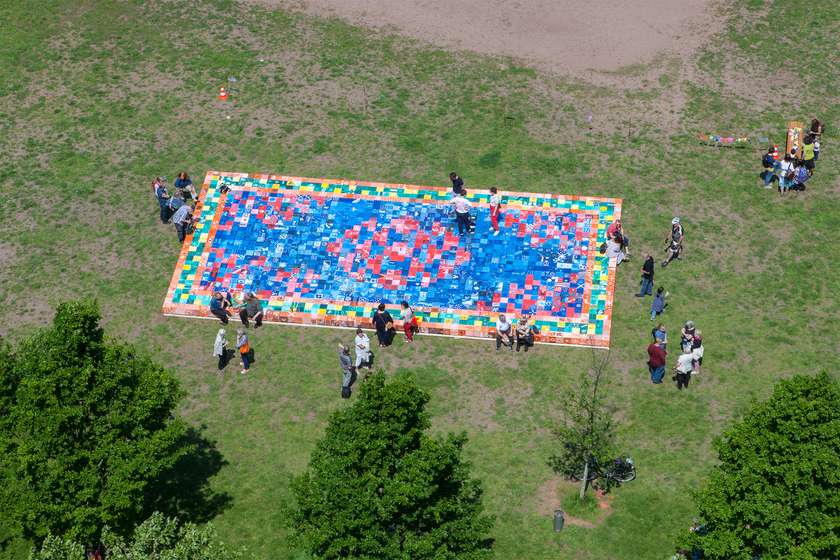
Carpet pattern viewed from the top of the highrises.
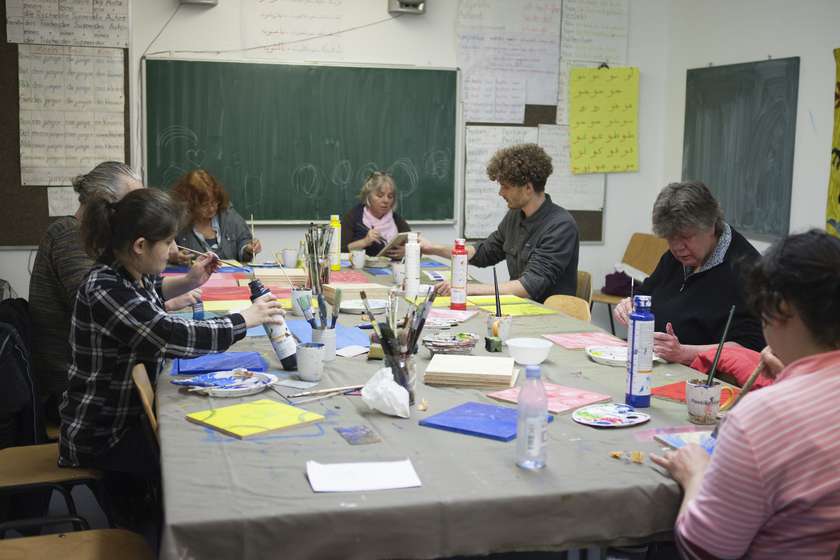
Painting the wooden tiles at a local community centre.
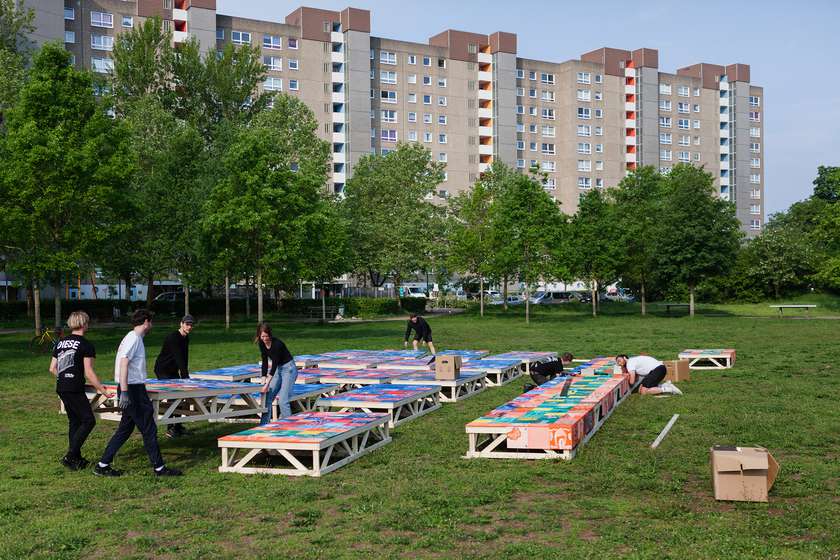
Setting up the stage.
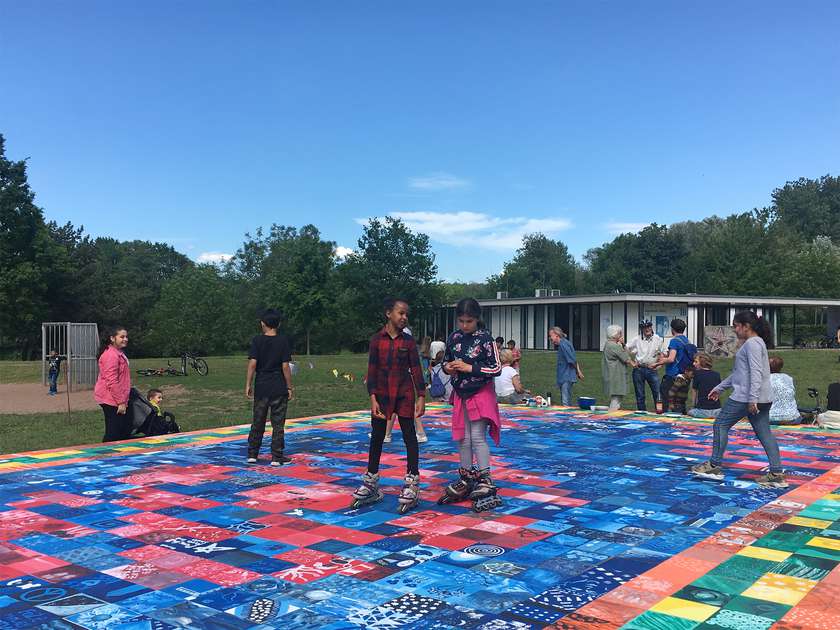
Kids and locals using the carpet for the first time.
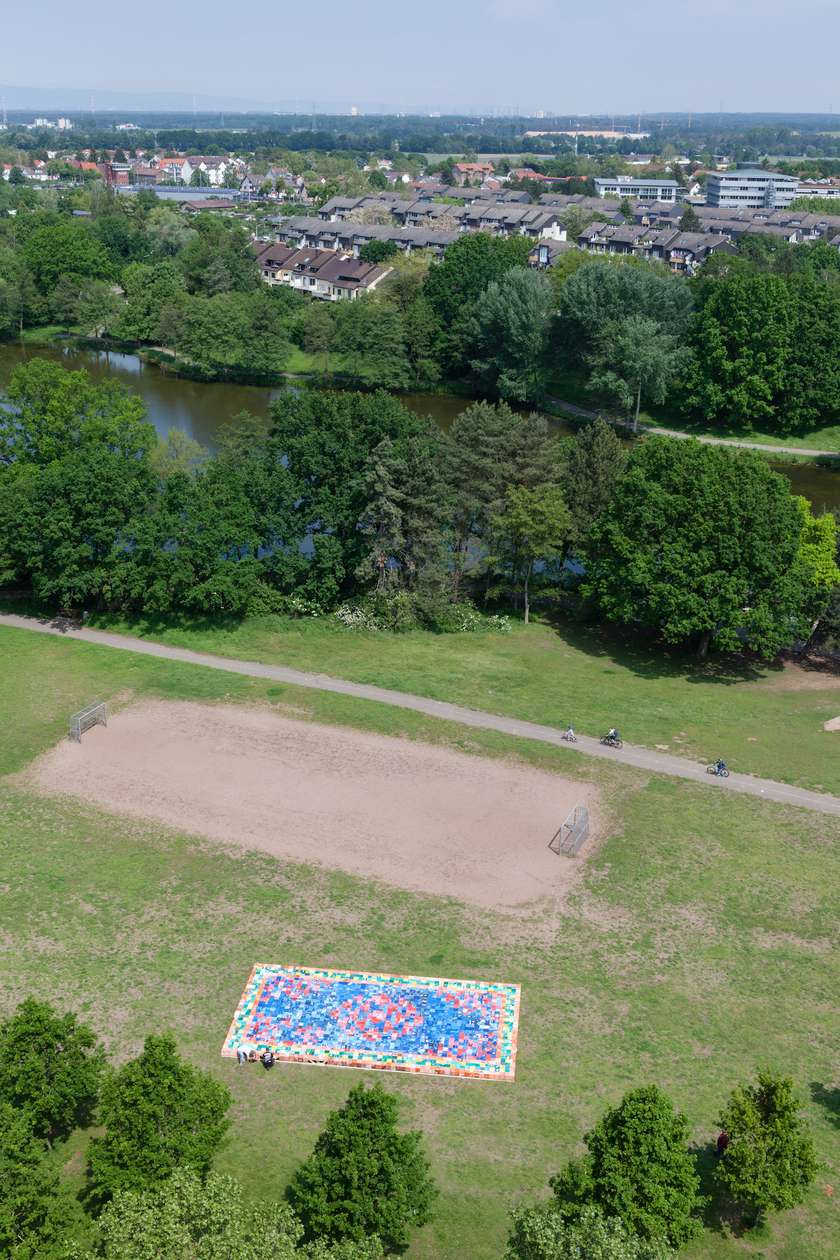
Top view of the carpet in the park near the local pond.